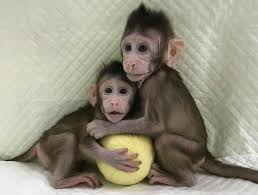
Breaking News
 VENI, VIDI, VENEZUELA: Pox Americana from War-a-Iago.
VENI, VIDI, VENEZUELA: Pox Americana from War-a-Iago.
 Billionaire Trump megadonor set to make killing on Venezuela oil
Billionaire Trump megadonor set to make killing on Venezuela oil
 Venezuelan Tragedy: Socialism, Entitlement, and Tyranny Are Connected
Venezuelan Tragedy: Socialism, Entitlement, and Tyranny Are Connected
 Fraud Nation: PATRIOTS' TOP 10 – Somali Fraud EXPOSED in Minnesota – Watch MAGA
Fraud Nation: PATRIOTS' TOP 10 – Somali Fraud EXPOSED in Minnesota – Watch MAGA
Top Tech News
 The First Production All-Solid-State Battery Is Here, And It Promises 5-Minute Charging
The First Production All-Solid-State Battery Is Here, And It Promises 5-Minute Charging
 See inside the tech-topia cities billionaires are betting big on developing...
See inside the tech-topia cities billionaires are betting big on developing...
 Storage doesn't get much cheaper than this
Storage doesn't get much cheaper than this
 Laser weapons go mobile on US Army small vehicles
Laser weapons go mobile on US Army small vehicles
 EngineAI T800: Born to Disrupt! #EngineAI #robotics #newtechnology #newproduct
EngineAI T800: Born to Disrupt! #EngineAI #robotics #newtechnology #newproduct
 This Silicon Anode Breakthrough Could Mark A Turning Point For EV Batteries [Update]
This Silicon Anode Breakthrough Could Mark A Turning Point For EV Batteries [Update]
 Travel gadget promises to dry and iron your clothes – totally hands-free
Travel gadget promises to dry and iron your clothes – totally hands-free
 Perfect Aircrete, Kitchen Ingredients.
Perfect Aircrete, Kitchen Ingredients.
 Futuristic pixel-raising display lets you feel what's onscreen
Futuristic pixel-raising display lets you feel what's onscreen
 Cutting-Edge Facility Generates Pure Water and Hydrogen Fuel from Seawater for Mere Pennies
Cutting-Edge Facility Generates Pure Water and Hydrogen Fuel from Seawater for Mere Pennies
In a scientific first, cloned monkeys are born. Will they accelerate biomedical research?

Scientists in China reported1 on Wednesday in Cell that they had cloned two healthy long-tailed macaque monkeys from the cells of another macaque, using the Dolly technique. The two clones, born 51 and 49 days ago, were created from a fetus's cells; so far, the scientists have not been able to make the tricky procedure work when they used cells from adult macaques. That would seem to postpone the dystopian day when cloning children and grown-ups becomes as mainstream as IVF. But because "the technical barrier [to cloning primates] is now broken," co-author Mu-ming Poo of the Institute of Neuroscience in Shanghai told reporters, the technique "could be applied to humans" — something he said his team has no intention of doing and sees no reason for.
Cloning pioneers said the monkey clones represented, as Dr. Robert Lanza put it, "an impressive breakthrough, which overcomes the last major hurdle in the field." Lanza co-led teams that cloned a gaur in 2000 and in 2014 used the Dolly technique to produce human embryos2 (but not pregnancies) from the cells of an adult.



